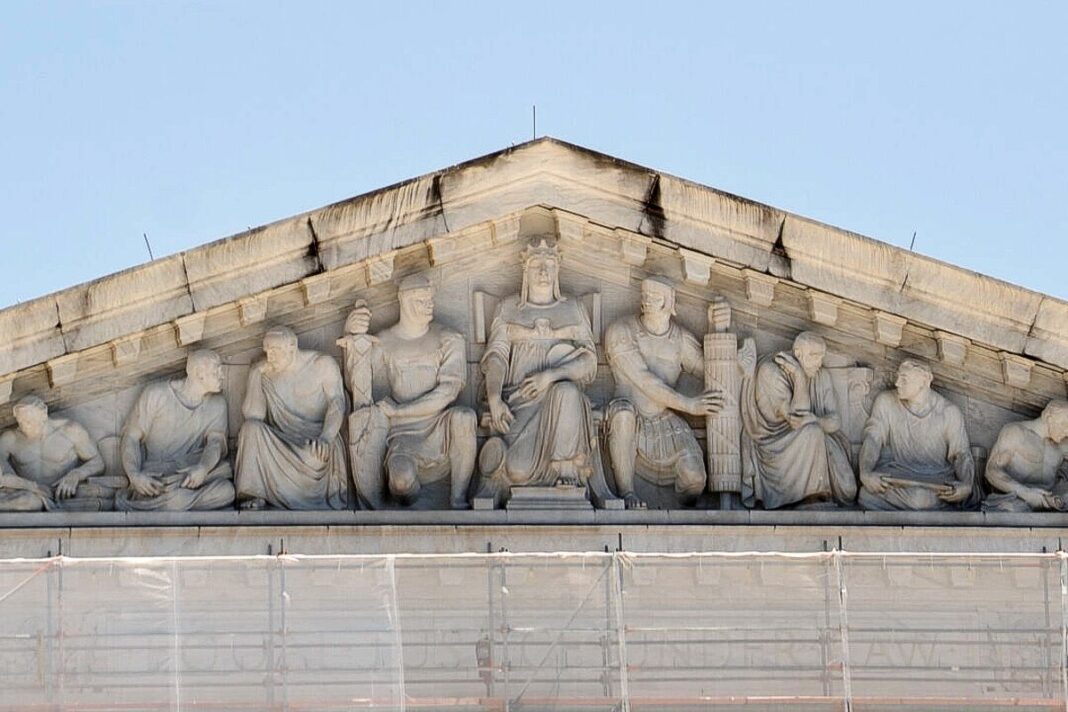A federal district court ruled Nov. 18 that challengers would likely be able to prove at trial that the state map was racially discriminatory.
The U.S. Supreme Court issued an emergency stay late Nov. 21, temporarily allowing a newly redrawn election map that was expected to increase Republican representation in the state’s U.S. House delegation.
The Supreme Court took action hours after Texas appealed a federal district court ruling striking down the election map passed earlier this year.
Justice Samuel Alito, who oversees urgent appeals from Texas, issued an administrative stay halting the lower court ruling. An administrative stay preserves the status quo while giving justices more time to consider a case.
Republicans currently enjoy a razor-thin majority over Democrats in the House of Representatives, and Texas Republicans currently hold 25 of the state’s U.S. House seats. Democrats hold 12 seats. Congressional elections are scheduled for Nov. 3, 2026.
The emergency application that Texas filed earlier in the day asks the nation’s highest court to overturn the ruling and issue an order blocking its enforcement for the time being.
Under the federal Voting Rights Act, the state is allowed to file an appeal directly with the Supreme Court, skipping the U.S. Court of Appeals for the Fifth Circuit.
A three-judge panel of the U.S. District Court for the Western District of Texas held 2-1 on Nov. 18 that the state may not use the new map because “substantial evidence shows that Texas racially gerrymandered the 2025 Map.” The case is known as League of United Latin American Citizens v. Abbott.
In the federal district court’s majority opinion, U.S. District Judge Jeffrey V. Brown said that “the Plaintiff Groups are likely to prove at trial that Texas racially gerrymandered the 2025 Map.”
Gerrymandering refers to the manipulation of electoral district boundaries to benefit a particular party or constituency. The Supreme Court has previously ruled that race-based gerrymandering violates the U.S. Constitution, but redrawing district boundaries to boost partisan fortunes passes constitutional muster.
U.S. District Judge David C. Guaderrama joined the opinion. U.S. Circuit Judge Jerry E. Smith filed a strongly worded dissenting opinion.
Hours after the ruling, Texas Gov. Greg Abbott, a Republican, said the claim that the map was discriminatory was “absurd and unsupported” by testimony, adding the state would appeal to the Supreme Court.
“The Legislature redrew our congressional maps to better reflect Texans’ conservative voting preferences–and for no other reason.”
“This ruling is clearly erroneous and undermines the authority the U.S. Constitution assigns to the Texas Legislature by imposing a different map by judicial edict,” Abbott said.
The state also filed a notice on Nov. 18 advising the district court of the upcoming Supreme Court appeal.
Arjun Singh and Reuters contributed to this report.
This is a developing story and will be updated.








